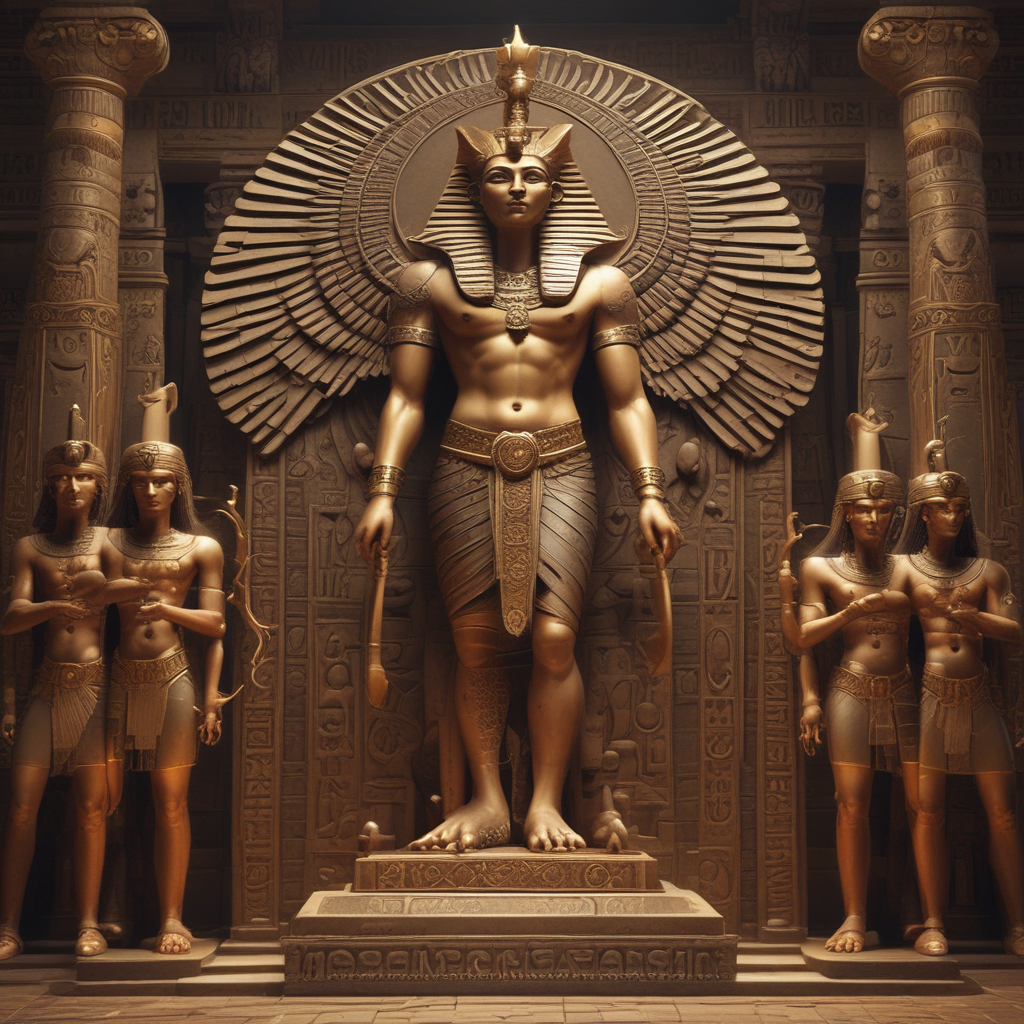The Myth of the God Montu in Egyptian Mythology
In ancient Egyptian mythology, Montu was a significant deity associated with war and strength. This fierce god held a prominent place in the beliefs of the Egyptians, symbolizing power and valor.
Who was Montu?
Montu, also known as Mentu, was considered a falcon-headed god with strong associations to bull worship. Often depicted with a sun disc and two plumes on his head, he embodied qualities like aggression, courage, and protection.
Role and Importance
Montu was primarily revered as a war god, representing the raging heat and might of battle. Ancient Egyptians called upon Montu for strength in conflicts, with rituals and offerings dedicated to him in times of war and adversity.
Worship and Temples
Worship of Montu centered around ancient Egyptian cities like Thebes, Armant, and Medamud. Temples dedicated to Montu stood as powerful symbols of protection and victory. The Temple of Montu in Medamud was particularly noteworthy, serving as a focal point for his worship.
Devotees believed that Montu’s influence extended beyond physical battles, aiding individuals in overcoming obstacles and inner conflicts with his fierce determination and resilience.
Overall, the myth of Montu showcases the significance of strength and courage in overcoming challenges, making him a respected deity in Egyptian mythology.
FAQs about The Myth of the God Montu in Egyptian Mythology
Who is Montu in Egyptian mythology?
Montu is an ancient Egyptian deity associated with war and strength. He was often depicted as a falcon-headed man and was considered a fierce and powerful warrior god.
What role did Montu play in Egyptian mythology?
Montu was revered as a god of war and protection. He was believed to embody the sun god Ra’s destructive power when in battle, and he was called upon by pharaohs and warriors for strength and victory in conflicts.
Where was Montu primarily worshipped?
Montu was particularly venerated in the ancient Egyptian city of Thebes, where he was considered the city’s local god. The Temple of Montu at Karnak was one of the main centers of his worship.
Is Montu associated with any other deities in Egyptian mythology?
Montu was sometimes linked with other warrior gods like Horus and Min. He was also associated with the war goddesses Sekhmet and Bastet in some interpretations.
What symbols are associated with Montu?
Symbols commonly linked to Montu include the bull, which represented his strength and virility, and the sun disc, signifying his connection to the sun god Ra and his fierce, radiant power.





